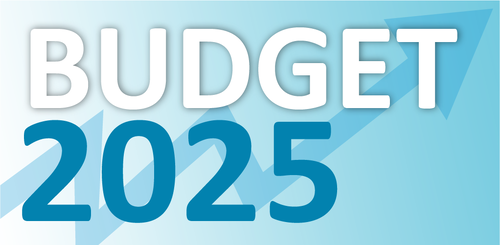On Thursday July 11th, 2024 the INOU attended the Department of Social Protection’s annual Pre-Budget Forum. The following article is a summary of the INOU’s Pre-Budget Submission and the calls the organisation is making on the Government to support people who are unemployed, furthest from the labour market, and organisations seeking to address socio-economic exclusion.
The theme of this year’s National Economic Dialogue was “A more shock-prone world: challenges and opportunities for Ireland”. In the background paper, under the heading of “Well-being” - How is Ireland performing?, the Government notes that “This year’s data show that women, immigrants/non-Irish, unemployed people, people with long-term illness or disability, single-parent households, households with lower incomes, and households in rented accommodation perform less-well than other comparable groups across multiple well-being dimensions.” (p8)
The INOU’s Pre-Budget 2025 submission has five themes
- Adequate Income
- Supportive Employment Services
- Employment and Programmes
- Education and Training
- Community Based Organisations
In May, 2024 at the INOU’s Annual Delegate Conference one of the five motions debated and passed stated that the “INOU demands that the Government benchmarks all social welfare rates at a level which is sufficient to lift people above the poverty line and provide them with a Minimum Essential Standard of Living; and to properly support unemployed people and others marginalised in the labour market to participate in meaningful education, training and employment programmes.” To that end under the theme of Adequate Income the INOU is calling on the Government to “Increase Social Welfare payments by €20, and adjust related supports so that people do not lose this increase through, for example, an increase in their differential rent.”
The INOU is also calling for “the current Jobseeker’s Benefit payment for people for whom the new Pay Related Jobseeker’s Payment would result in a lower income payment” to be retained. Given the concerns raised throughout the work of the organisation on people being on the wrong payment, not being aware of their entitlements, the INOU is calling on the Government to “Develop a social welfare health check that proactively informs people of available and appropriate supports and services.”
Under the theme Supportive Employment Services the motion passed at the Annual Delegate Conference captures the INOU’s key Budget 2025 asks as the organisation calls “on the Government to deliver wrap around employment and support services that really meet the needs of people who are unemployed, regardless of whether or not they are on a social welfare payment, and to support them to access decent work while appropriately addressing any barriers they experience.”
Amongst the calls to Government under the theme of Employment and Programmes is one which states that “Given the cost of participation on employment programmes, support participants to meet them by increasing the additional payment on these programmes by €10.” Another seeks to “Support people to address the initial costs of taking up employment by introducing a travel card or a voucher system if people are living in areas with few public transport options.” One of the motions at the Annual Delegate Conference called “on the Government to change the system for working part-time and signing-on to one based on the number of hours worked rather than the number of days. The current system is very unfair and is impacting on unemployed people taking up some work opportunities.” This is a long standing issue for the INOU and has been raised by organisations like the NESC. Part-time work can be a useful route into employment for people trying to manage other issues in their lives: facilitating people to take up these options is important - to support people who may be a distance from the labour market or to support people who may have limited access to transport and / or childcare services.
In the National Strategic Framework for Lifelong Guidance 2024-2030 it states that “The OECD (2023) note that individuals will need a stronger and better-rounded set of skills to thrive in the Ireland of tomorrow. Conversely, it is also noted by the OECD that the skills of individuals could be more fully utilised and activated in the labour market. Regarding access and inclusion within labour-market dynamics, the OECD notes that integrating disadvantaged groups into the labour market is crucial to ensure no groups are left behind and to improve Ireland’s overall employment performance. Guidance has a key role to play in relation to the OECD’s observations of the Irish context.” (p18) Under the theme of Education and Training the INOU calls on the Government to “Acknowledge the cost of participation in education and training and properly support adult learners to meet these costs to facilitate their participation.” To support and resource the provision of “good career and educational guidance to support people to access the most appropriate course.” And to “Ensure there is good sign posting within and across the system so people of working age know where they can go to get the most appropriate supports and provision.”
Under the theme of Community Based Organisations the INOU is calling on the Government to “Properly resource community groups in their work identifying and addressing the needs of people experiencing social and economic exclusion.” To “Support the community and voluntary sector, an important entry point for people more distanced from the labour market, to play its part in supporting employment, education and training opportunities.” And to “Properly support community led social enterprises seeking to address exclusion from the labour market and improve access to affordable supports and services, including digital access and the investment to understand and adapt to the technological changes underway.”
To read the INOU’s full Pre-Budget Submission, Budgeting for 2025, please follow this Link
